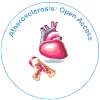हमारा समूह 1000 से अधिक वैज्ञानिक सोसायटी के सहयोग से हर साल संयुक्त राज्य अमेरिका, यूरोप और एशिया में 3000+ वैश्विक सम्मेलन श्रृंखला कार्यक्रम आयोजित करता है और 700+ ओपन एक्सेस जर्नल प्रकाशित करता है जिसमें 50000 से अधिक प्रतिष्ठित व्यक्तित्व, प्रतिष्ठित वैज्ञानिक संपादकीय बोर्ड के सदस्यों के रूप में शामिल होते हैं।
ओपन एक्सेस जर्नल्स को अधिक पाठक और उद्धरण मिल रहे हैं
700 जर्नल और 15,000,000 पाठक प्रत्येक जर्नल को 25,000+ पाठक मिल रहे हैं
में अनुक्रमित
- गूगल ज्ञानी
- RefSeek
- हमदर्द विश्वविद्यालय
- ईबीएससीओ एज़
- पबलोन्स
- आईसीएमजेई
उपयोगी कड़ियां
एक्सेस जर्नल खोलें
इस पृष्ठ को साझा करें
अमूर्त
Sleep Disorders in Patients with Parkinson Disease and Its Correlation to Motor Symptoms Severity
Rabwa Khalil Mohammed Fadol
Background: Sleep disturbances are non-motor manifestations, which occurs in up to 96% of patients with
Parkinson’s disease (PD). They include insomnia, disorders of daytime somnolence, sleep-related breathing disorders,
restless legs syndrome (RLS), and rapid eye movement behavior disturbances. Sleep disorders have significant impact
on the quality of life in Parkinson’s disease patients.
Method: This was a cross-sectional descriptive study conducted at three neurology referral hospitals. The aim
was to assess the frequency and pattern of sleep disturbances among patients with PD. Questionnaires were used to
obtain the demographic, clinical features and evaluation of sleep disturbances using PD sleep scale-2 (PDSS-2). The
correlation of quality of sleep with the duration of the disease and severity of motor symptoms was assessed using
Hoehn and Yahr staging. SPSS version 25 was the tool used for analysis—p value <0.05.
Results: 71 patients with confirmed PD were studied. Males represented 70.4% and the mean age was 64.66 ±
9.6years.
38% had significant nocturnal sleep disturbances (PDSS-2≥18). The most common sleep disorders were nocturia
72% (51), sleep maintenance insomnia 46% (38), sleep refreshment 46% (34), waking up due to pain in arms or legs
45% (32) and (21%) 15 had nocturnal hallucinations. Poor sleepers exhibited longer disease duration but revealed no
association with PD severity.
Conclusion: In 71 patients with Parkinson’s disease, one-third had significant sleep disturbances. PDSS-2 score
was positively correlated to prolonged duration but not motor symptoms’ severity
विषयानुसार पत्रिकाएँ
- अंक शास्त्र
- अभियांत्रिकी
- आनुवंशिकी एवं आण्विक जीवविज्ञान
- इम्यूनोलॉजी और माइक्रोबायोलॉजी
- औषधि विज्ञान
- कंप्यूटर विज्ञान
- कृषि और जलकृषि
- केमिकल इंजीनियरिंग
- चिकित्सीय विज्ञान
- जीव रसायन
- नर्सिंग एवं स्वास्थ्य देखभाल
- नैदानिक विज्ञान
- नैनो
- पदार्थ विज्ञान
- पर्यावरण विज्ञान
- पशु चिकित्सा विज्ञान
- पादप विज्ञान
- बायोमेडिकल साइंसेज
- भूविज्ञान और पृथ्वी विज्ञान
- भोजन एवं पोषण
- भौतिक विज्ञान
- रसायन विज्ञान
- व्यवसाय प्रबंधन
- सामाजिक एवं राजनीतिक विज्ञान
- सामान्य विज्ञान
- सूचना विज्ञान
क्लिनिकल एवं मेडिकल जर्नल
- आणविक जीव विज्ञान
- आनुवंशिकी
- इम्मुनोलोगि
- एनेस्थिसियोलॉजी
- कार्डियलजी
- कीटाणु-विज्ञान
- कैंसर विज्ञान
- गैस्ट्रोएंटरोलॉजी
- ज़हरज्ञान
- तंत्रिका-विज्ञान
- त्वचा विज्ञान
- दंत चिकित्सा
- दवा
- नर्सिंग
- नेत्र विज्ञान
- नेफ्रोलॉजी
- नैदानिक अनुसंधान
- पल्मोनोलॉजी
- प्रजनन चिकित्सा
- बच्चों की दवा करने की विद्या
- भौतिक चिकित्सा एवं पुनर्वास
- मधुमेह और एंडोक्राइनोलॉजी
- मनश्चिकित्सा
- रुधिर
- रेडियोलोजी
- शल्य चिकित्सा
- संक्रामक रोग
- स्वास्थ्य देखभाल
- हड्डी रोग

 English
English  Spanish
Spanish  Chinese
Chinese  Russian
Russian  German
German  French
French  Japanese
Japanese  Portuguese
Portuguese  Telugu
Telugu